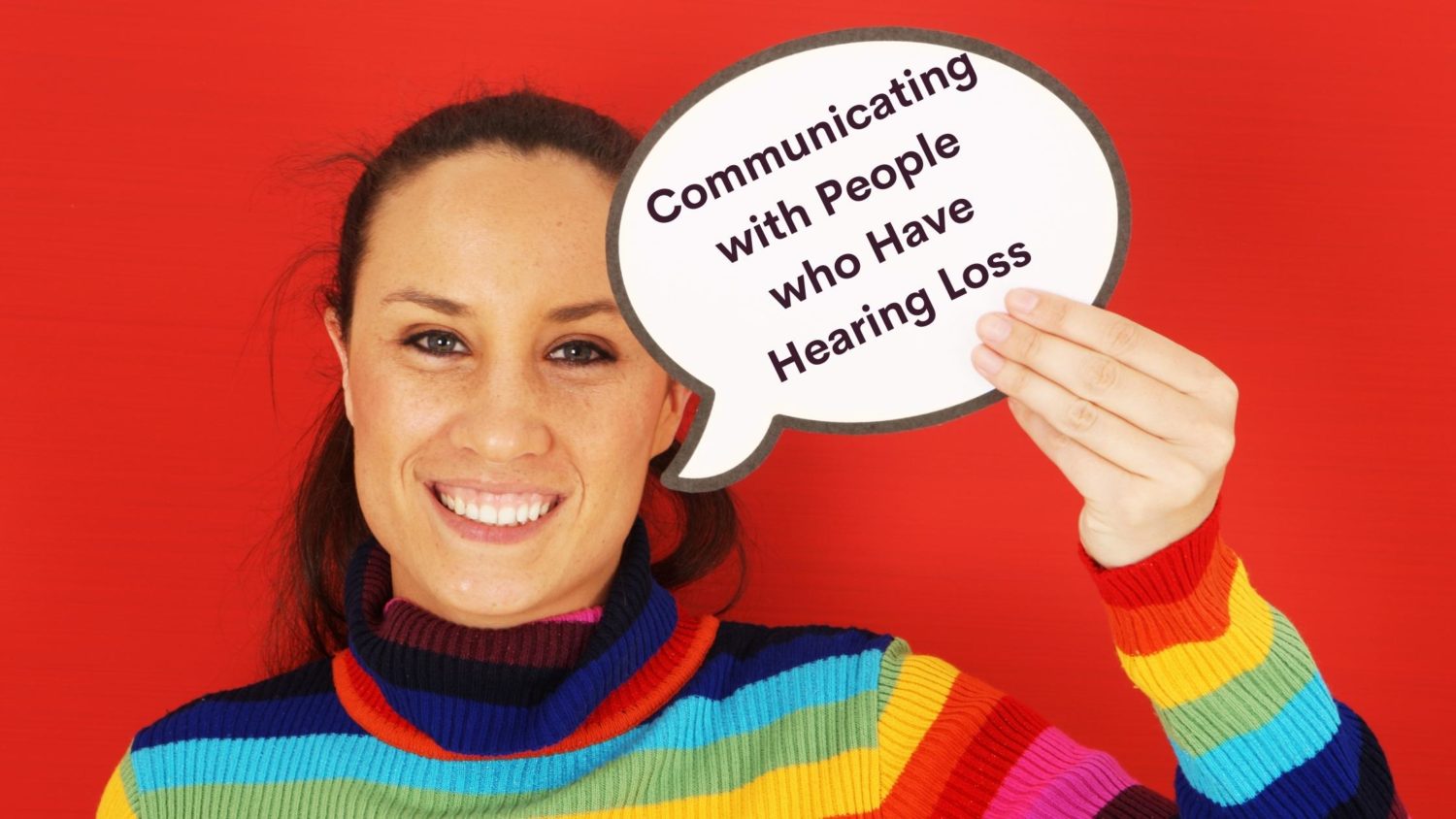- Are Cochlear Implants Worth It? - June 6, 2025
- Tips for Using Hearing Aids in Different Environments - May 27, 2025
- Rechargeable Hearing Aids vs. Battery-operated Hearing Aids - May 16, 2025
An estimated 50 million Americans have hearing loss. This means you probably have a friend or family member who doesn’t have perfect hearing. Communicating with people who have hearing loss can be challenging for everyone. You may have to repeat yourself before they understand what you’ve said, or you may feel frustrated when they keep mishearing you.
The good news is that there are a few simple tricks that will make conversations a lot easier. Here are a few strategies that will help you communicate with people who have hearing loss:
Face-to-Face
Having a conversation with someone who’s turned away from you is hard. It’s even harder for someone with hearing loss. Before starting a conversation, face the person you’re talking to. Avoid calling them from another room or speaking when your back is turned. Good communication happens face-to-face. Pull up a chair and get comfortable.
It’s also a good idea to keep your hands away from your face while talking. This can be distracting, and it can even block your mouth or any other expressions your conversation partner relies on.
Proper Lighting
People with hearing loss rely on other cues to help them follow conversations. That’s why it’s important to consider the lighting. Having conversations in brightly lit rooms will make it easier for someone with hearing loss to see your facial expressions and other body language, so turn on a light if it’s feeling dark.
Reduce Background Noise
Competing sounds make it harder to focus on the conversation. If the TV or radio is on in the background, your brain has to work harder to sort the sounds and determine which sounds are important and which ones are background sounds.
For someone with hearing loss, it’s harder to sort out these sounds. One way you can have an easy conversation is by turning off any background sounds and creating a quiet environment.
Speak Clearly and Calmly
When you have a conversation with someone who has hearing loss, it’s tempting to shout, speak very slowly, or draw out words. None of this will help! In fact, these can all distort speech, and make it harder to understand what you’re saying.
Your best option is to speak as clearly as possible, but without exaggerating words or shouting. Speak clearly and calmly to make the conversation easier to follow. You can also use shorter sentences and leave pauses between phrases to give your friend or family member a chance to process what you said.
Rephrasing Instead of Repeating
Be prepared to repeat yourself if necessary. Many people with hearing loss will ask you to repeat yourself from time to time. However, we recommend rephrasing what you said instead of repeating it word for word. Certain sounds may be harder to hear, so if you repeat exactly what you said, your friend or family member still might not understand what you’re communicating. Rephrasing can help them glean more information, and make it easier for them to fill in the blanks in what they understand.
Conversation Starters
Ready for a new topic? Let your listener know the topic of the conversation before launching into a long explanation. They might spend the first few seconds scrambling to figure out what you’re talking about and miss the words you’re saying. By starting the conversation right, with a brief sentence about the new topic, you can help keep everyone on the same page.
Write it Down
Are you sharing important information such as a date or time? Don’t hesitate to write it down. This avoids any miscommunications and reduces frustration all around.
Be Patient
Remember that everyone has a harder time following conversations when they’re tired, stressed, or sick. Hearing loss can be exhausting, so your friend or family member may have a harder time understanding you at the end of a long day.
Encourage Hearing Aids
The best way to help your loved one hear is by encouraging them to wear hearing aids. These sophisticated devices make it easier to hear all speech sounds, reduce background noise, and listen without getting tired.
We’d love to see you and your loved one in the office, so offer to come with your friend or family member to a hearing test appointment.

